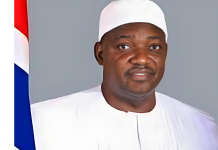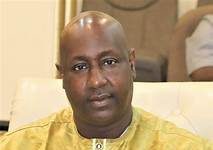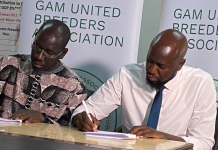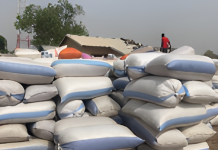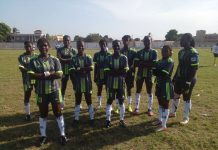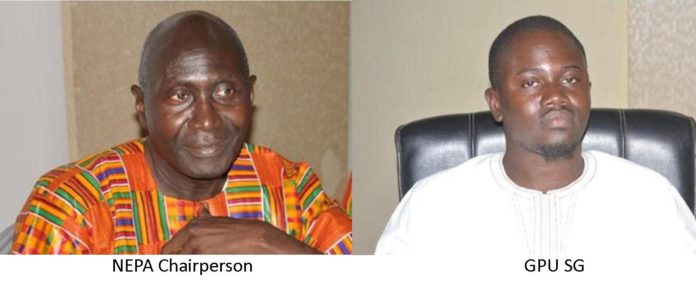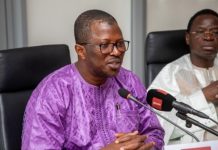The media has expressed opposition to moves by the office of the president to subject media personnel who wish to be part of the State House Press Corps to background checks by the security service at the presidency. The Newspaper Publishers Association of The Gambia has written the following open letter to the Director of Press and Public Relations at the Office of the President calling on her to reverse their decision.
Director of Press and Public Relations
Office of the President
30th March, 2019
Dear Madam,
SUBJECTING STATE HOUSE REPORTERS TO BACKGROUND CHECKS BEFORE ISSUING THEM WITH PRESS CARDS
The Newspaper Publishers Association of The Gambia have learnt that media personnel who wish to be part of the State House Press Corps are to be subjected to background checks by the security service at the presidency which take the form of an interview.
This policy is tantamount to restricting the freedom of the media and its access to information. Such a policy was never adopted by the former regime which we today accuse of suppressing the media. It is unimaginable that you have adopted such a policy.
The media is given the constitutional responsibility under section 207 of holding the government accountable to the people of The Gambia. How can the government screen those that are to hold it accountable? It does not make sense.
Furthermore, it is claimed that the background check is in accordance with the media accreditation policy which has been shared with the media earlier. We have perused this document but have not seen anything making reference to background check.
We wish to inform you that all members of the Newspaper Publishers Association of The Gambia, namely, The Point, The Standard, Daily News, The Gambia Today and Foroyaa do not welcome this decision and want it reversed.
We call on you to reverse your decision to subject media personnel to background checks by security personnel.
This government has come to power purporting to be pursuing a policy of strengthening the media and media freedom. Bear in mind that newspapers play a crucial role in The Gambia in the transmission of news and you should not exclude them by pursuing this unfriendly media policy.
We look forward to a positive response.
Chairperson
GPU calls for boycott of screening
The membership of the Gambia Press Union at an emergency general meeting has called for a boycott of the screening of journalists. The full text of the communique on the matter is as follows:
GPU COMMUNIQUE ON STATE HOUSE NEW PRESS ACCREDITATION POLICY
On Saturday, March 30, the Gambia Press Union (GPU) convened an emergency general meeting in response to a new policy by the State House requiring journalists to undergo security screening at the National Intelligence Agency (NIA) for accreditation to cover the presidency.
The new policy was announced last week by the Office of the Director of Press and Public Relations (DPPR) at the Office of the President.
The screening by NIA, renamed SIS, is in addition to a State House-prepared accreditation form already filled by journalists giving every information about their work and as well submitting their national identity cards. In essence, the information given was enough to be used for background checks.
Now in addition to this, with the new policy, journalists are required to go before a panel of NIA officials for security screening which could last for about an hour.
Since the announcement, the GPU issued a media alert urging journalists to stay away from any such arrangement until it exhausts consultations with the relevant authorities on the matter. The GPU has had brief engagements with and made its position known to the Office of the DPPR.
Following hours of discussions at the GPU offices, we the media professionals in The Gambia hereby resolve that:
We acknowledge that the Office of the DPPR has over the past two years cooperated quite well with the press and has made tremendous efforts towards facilitating the work of the press on matters of coverage of events involving the presidency;
We recognise the improved environment for press freedom. We recognise the ongoing efforts by the government working closely with the media towards improving the relationship between the government and the media;
We recognise our constitutional right to hold the government accountable to the people. Access by journalists to such important office as the Office of the President is crucial in pursuant of our mandate as the watchdogs;
We acknowledge that institutional arrangements such as press accreditations are sometimes necessary to ensure security, and law and order. We are ready and willing to respect and comply with any such measure that aims to promote, not to curtail, press freedom.
We however are convinced that while background checks by security on journalists may be the norm, nowhere in the world does the process of issuance of press accreditation involve screening in the form of a panel of intelligence personnel.
We therefore consider the screening process as required by the Office of the DPPR as an interrogation, not a background check.
We have taken a common position that screening of journalists in this fashion by the NIA is a non-starter. It violates international best practices on press freedom as it places unnecessary barriers to the exercise of the right of the journalist to inform the people of what the government is doing on behalf of the tax payers.
We are of the view that the new measure provides room for abuse of press freedom that it could be used in the future to shut out media professionals who are deemed to be critical of government and government officials
In view of this, the emergency meeting resolves that no journalists should subject him/herself to any NIA screening. Complying may bring about long term safety complications for journalists.
GPU will not intervene if any such person gets into trouble arising from complying with the new requirement.
The meeting also called on the GPU to continue engaging the Ministry of Information and Communication Infrastructure and the DPPR with a view to bringing accreditation procedures in line with standards that support the freedom and safety of media professionals.
In conclusion, The Gambia is emerging from two decades of dictatorship during which journalists were tortured, jailed and exiled. When this government came, one of the things they promised the people was an improved environment for the protection of human rights and press freedom. A lot has been achieved in this direction. We are thus urging the authorities to refuse any temptation that could derail this progress.





